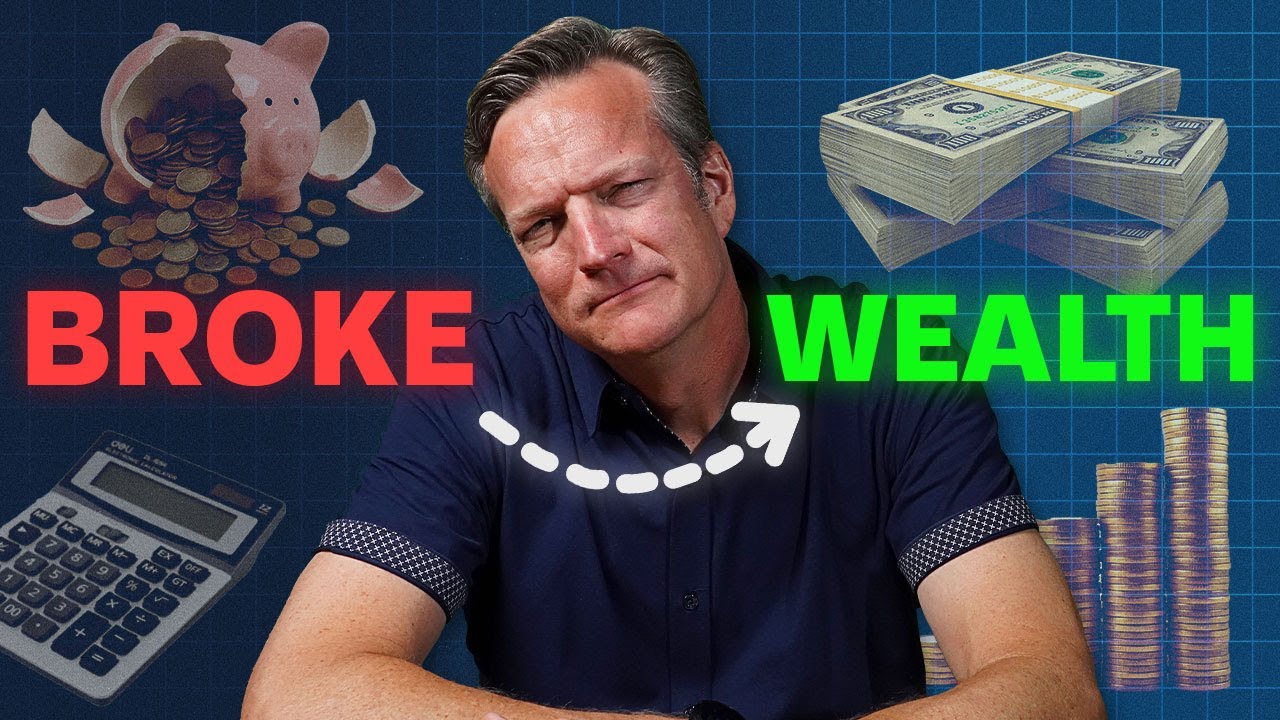We’re going to move on to Britney’s question next. It says, “We talk a lot about investing before retirement. How should investing look after retirement? Should I rebalance my portfolio, adding in more bonds, or stick with index funds? Any tips or tricks as I start to think about this?”
“Yeah, it is interesting, and we get those comments a lot. It seems like there’s so much emphasis and conversation around accumulation, building the portfolio, and how to save up a wealth of dollar bills. So, what happens when I begin living off of these assets? Well, I think there is a common misnomer out there that while I’m in my accumulation phase, I need to have risk assets in my portfolio, focusing on risk and growth. But then magically, when I retire, all of the risk goes away, and I’m going to take all of my retirement assets, put them in a coffee can in the backyard, or hold them in some cash account.
“That’s flawed thinking because one of the reasons we tell you that risk assets can be advantageous is because they can grow over the long term. Even if you are only one, three, five years away from retirement, I’m going to argue that based on your life expectancy, some portion of your portfolio probably still needs to pay for life 20, 25, 30, maybe even 40 years in the future.
“Just because you are retired does not mean that the risk component or the risk aspect of your portfolio goes away. Just like you had 40-year money goals at age 20, I would argue even at age 60, you should have some 40-year money goals that your portfolio is set up to try to satisfy. So, when it comes to retirement, decumulation, or living off of those assets, it’s not about this seismic shift from risk on to risk off, but realistically, it’s probably more about the glide path.
“How do I begin making some adjustments and making some changes as I move into decumulation, as I move into the retirement phase? Brian, one of the things that you and I talk about all the time with pre-retirees, and one of the biggest ways that we see overall allocation shifts, is in terms of even just something as simple as cash on hand. Like, we talk about emergency funds in the accumulation phase, which should be three to six months, that shifts as you begin to approach and move towards your time.
“You’re hitting on exactly what you wrote down, three quick things. There is a glide path that all of us are on, and I think when you’re in the accumulation phase, I also wrote down there’s ‘get wealthy’ behaviors and then there’s ‘stay wealthy’ behaviors. While you’re younger and have decades to retirement, without a doubt, you’re going to push the accelerator to try to grow your assets and maximize the opportunity. You’ll see that in your cash reserves, which will probably be around three to six months. You’ll see it in your asset allocation where you’re going to be way heavy on the risk profile of equity holdings in the S&P 500 and index funds.
“But then, once you get successful, you do start de-risking. Why? Because it is that transition from ‘get wealthy’ to ‘stay wealthy.’ There is a true risk of running up the scoreboard once you’re successful. Once you figure out what you need from your assets to live a comfortable retirement, you have to balance: does this mean undercutting the opportunity? Meaning, I think a lot of people think, and I’ve even had prospects who reach out and say, ‘Okay, when I get to be 60 years old or 65, I plan on going from 100% equities to 100% bonds or cash.’ I’d argue that’s pretty risky. That’s that seems extreme.
“On the other side of it, there are people who just want to run up the scoreboard by taking as much risk as possible to take advantage of the S&P 500. Historically, it’s going to get you 10-11% because that’s what it’s done for the last 50 years. What could go wrong?
“I always remind people you do not know how crazy your emotions will feel once you leave the workforce completely. It is a strange transition to go from accumulator and builder of wealth to now a consumer of your wealth. You take out your work, because a lot of people think there’s a coping mechanism for most of us is that when the market gets beat up and has that two out of every decade, two years out of every decade where the market goes into bear market territory and can lose 20%, 30%, 40%, 50% like 2008, you might just think, ‘That’s okay. I’ll just work a little longer, and I’ll be able to get my money back.’ Well, what happens if you lost 40% of your assets while you actually retired? It’s going to create chaos in your brain.
“I always tell people you need to have a glide path. You need to have a plan that reflects all those things because you’ll not only change the way you look at cash, but in retirement, you go from three to six months to 18 to 36 months. You go from an asset allocation that still has equities in it so you can grow and build the legacy and long-term opportunity for your assets, but you might also have enough diversified stuff in bonds, cash, and other conservative assets that you could conceivably ride out anything that comes your way for years because you will have access to very conservative assets, no matter what happens in the world.
“We talk about risk tolerance and then we talk about risk capacity. Just because you’re a cowboy or a cowgirl and you have the risk tolerance to get on any bucking bronco out there doesn’t mean you actually have the time to recover. That is a big part of this as well.
“We try to give every prospect, every client, and everybody we teach you on how to do this for yourself to recognize that there is a balance between how do we maximize opportunities but also minimize risk, and it’s risk-adjusted. That’s where the win is, and that’s what you should be working to understand because you know, it all goes back to, and I know that after I did a little research because I’ve been saying this my whole life, is ‘pigs get fat, hogs get slaughtered.’
“There is another way to say it: pigs get fed, hogs get…I can’t even remember, pigs get fast, the way you say it. But it is, you can have too much of a good thing. Make sure you balance between the fear of losing and the greed of trying to get as much as you can. There’s a healthy balance in there, and that’s why typically when people are successful, this is one of the big things that I think a good financial adviser can help somebody out with.
“Because when you get successful, your life just naturally gets really complex. It’s nice to have somebody who’s not just done one retirement because that’s what you’re facing. You’ve done this one time. Why not have somebody who’s done this hundreds of times so they can tell you what to expect, where your blind spots are, and how to get the best version of everything you’re looking for?”














